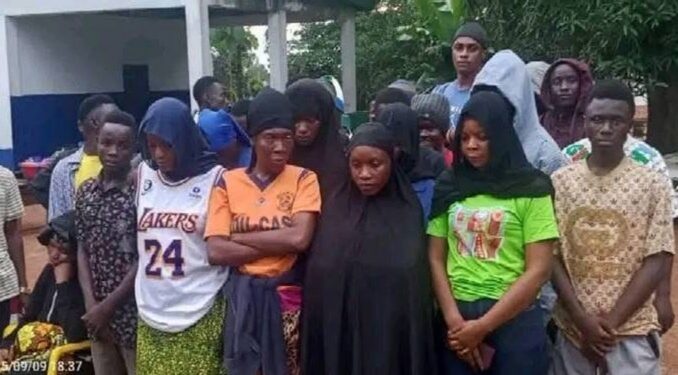By Hassan Osman Kargbo
Recent reports indicate that 54 Sierra Leoneans have been deported from neighbouring Guinea, raising concerns about migrant treatment and the state of bilateral relations between the two West African nations.
According to the Sierra Leone Police (SLP), the deportees were arrested in Guinea’s border town of Dubreka on allegations of loitering without lawful authority and failing to provide proper identification documents. Guinean authorities further accused the group of engaging in what they described as anti-social activities, including prostitution and drug peddling.
The deportation has sparked unease in Sierra Leone, where questions are being raised about the legality of the arrests and the treatment of citizens in Guinea. Families of some deportees expressed distress, saying their relatives had been living and working in Guinea for several years but were suddenly rounded up and expelled.
A senior police official in Freetown confirmed the deportees were handed over to Sierra Leonean authorities at the Gbalamuya border crossing in Kambia District. The official noted that the returnees are currently being profiled to establish their identities and determine whether they have pending legal or security issues at home.
“This is a sensitive issue that touches on the dignity and rights of our citizens,” the official said. “We are engaging with our Guinean counterparts to ensure such actions are conducted in line with international protocols.”
The deportation has also drawn attention to the longstanding challenges Sierra Leonean migrants face in Guinea. Many Sierra Leoneans cross into Guinea for economic reasons, including petty trading, farming, and casual labour, given the proximity and shared cultural ties between communities along the border. However, the lack of proper documentation often leaves them vulnerable to arrest and deportation.
Analysts warn that the incident could strain relations between Freetown and Conakry if not handled diplomatically. Both countries have historically maintained close ties, but tensions occasionally flare over cross-border issues such as smuggling, illegal mining, and migration.
Civil society groups in Sierra Leone have called on the government to issue a formal response, emphasizing the need to protect citizens abroad. A representative of a rights-based organization in Freetown urged authorities to prioritize dialogue with Guinea while also improving systems at home to ensure citizens travel with the required documentation.
“This incident underlines the importance of creating opportunities in Sierra Leone so that our people are not forced to seek uncertain livelihoods in neighbouring countries,” the activist added.
Meanwhile, some political commentators argue that Guinea’s actions reflect a broader regional trend of tightening immigration enforcement as governments grapple with social and security concerns. They caution that while countries have the right to regulate immigration, deportations must respect human rights and international standards.
As of now, the Ministry of Foreign Affairs in Freetown has not issued an official statement, but diplomatic sources indicate that discussions are ongoing behind closed doors. Observers say the government will need to balance protecting the rights of its citizens with maintaining cordial ties with Guinea.
For the deportees, the immediate challenge is reintegration into communities back home, particularly as many left Sierra Leone years ago in search of better opportunities. Humanitarian organizations are calling for support to ensure their safe resettlement and reduce the risk of further marginalization.
The latest deportation serves as a reminder of the fragile dynamics along the Sierra Leone–Guinea border, where movement is frequent, livelihoods are intertwined, and diplomacy is often tested by incidents affecting ordinary citizens.













